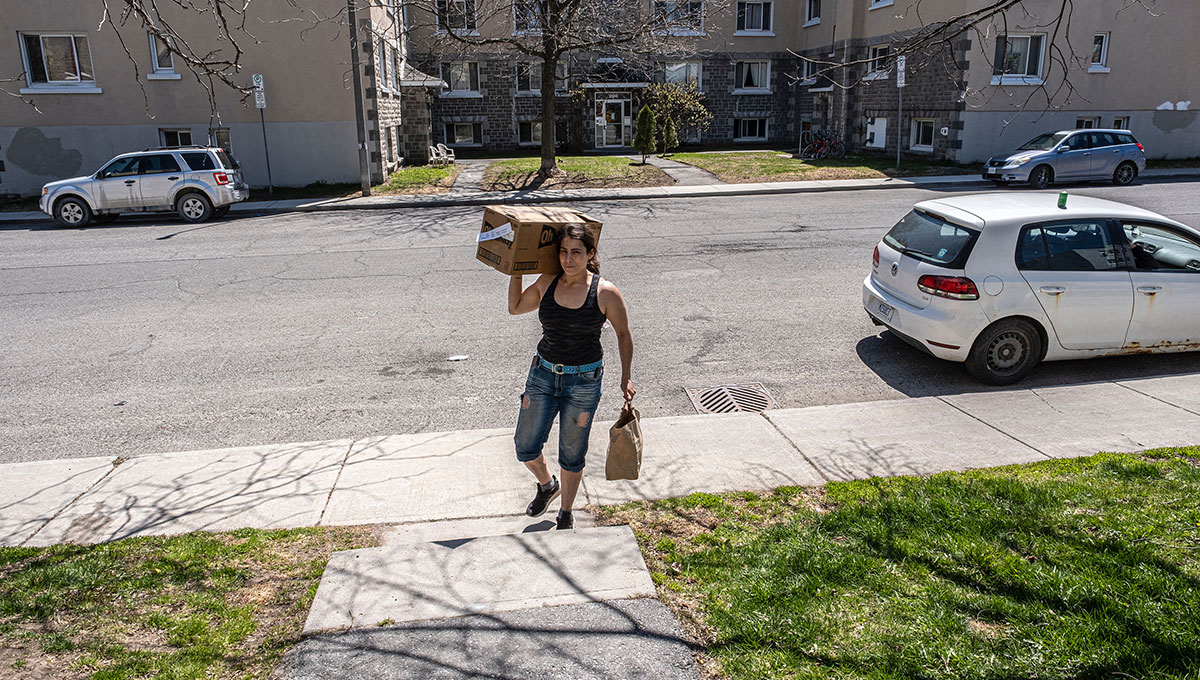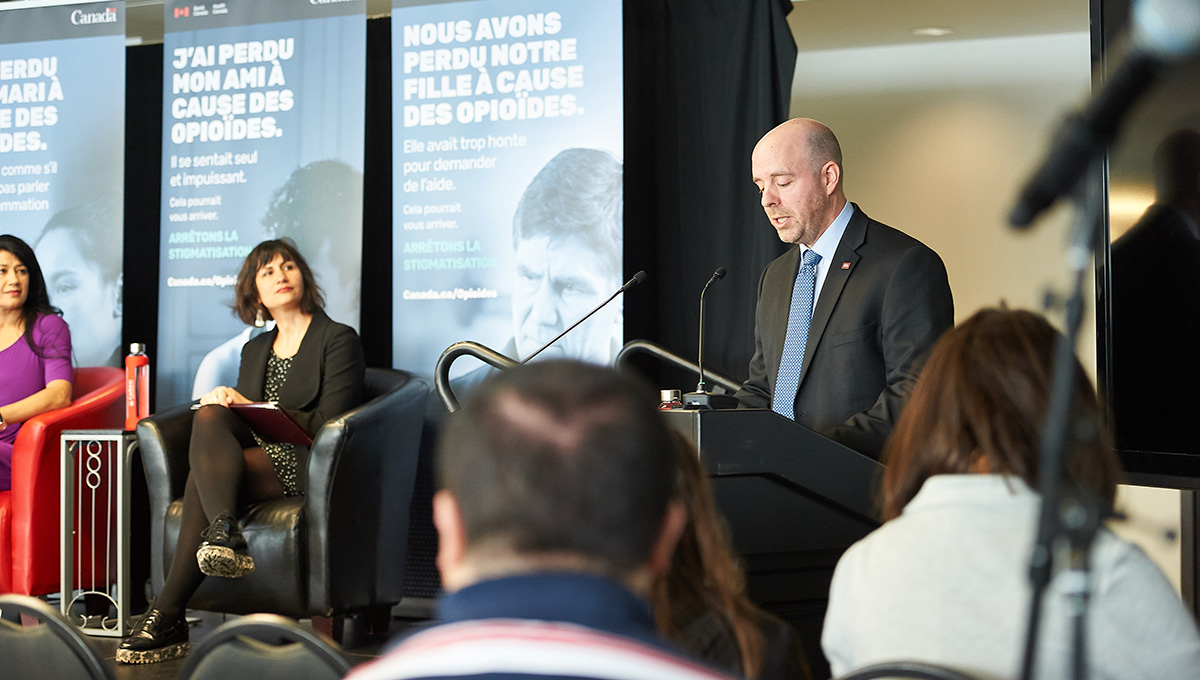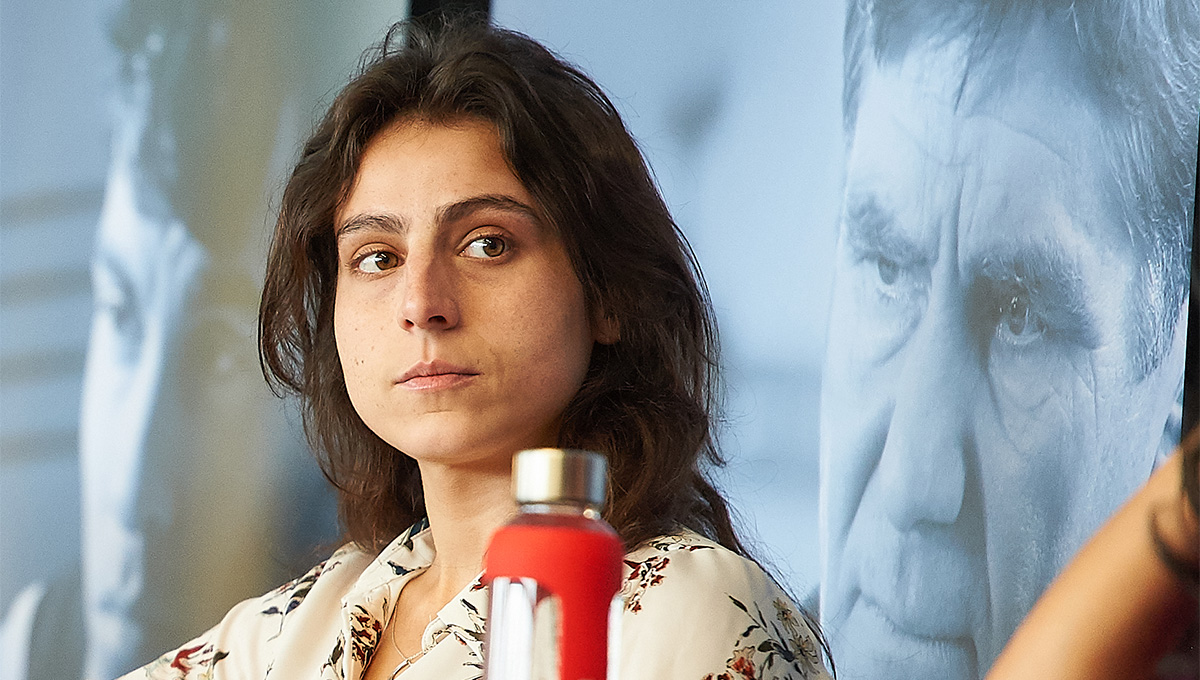By Dan Rubinstein
Photos by Josh Hotz and Martin Lipman
Charlotte Smith, a Carleton University master’s student in Sociology, has faced overwhelming challenges throughout her life: childhood sexual abuse, homelessness, incarceration, drug dependency.
Undaunted, she has channelled these experiences into her academic, advocacy and activist work, developing research projects to address youth homelessness, creating a bursary to help homeless youth attend Carleton, and delivering food, phones and other essential items to homeless and precariously housed youth who are struggling during the pandemic.

Charlotte Smith
For these actions, and for sharing her story of recovery to help eliminate the stigma surrounding mental illness, Smith will be awarded the Personal Leader for Mental Health award at the Royal Ottawa Foundation for Mental Health’s 2021 Inspiration Awards.
“It can be re-traumatizing, embarrassing and awkward talking so publicly about your mental health and substance use issues, so it’s comforting when someone tells you that you’re not just oversharing, you’re actually making a small difference in other people’s lives,” says Smith, who will be joined on the Inspiration Awards virtual podium by Carleton President Benoit-Antoine Bacon, winner of the Royal’s Transformational Leader award.
“Getting an award like this is fantastic, but there are so many people doing so much important work on mental health and substance use,” says Smith, who last year won a Community Builder Award from the United Way East Ontario for her volunteer efforts in COVID times.
“I feel more than a tad guilty accepting this award when so many of my friends, colleagues and community members are working tirelessly in the same areas.
“More than anything, winning this award is a testament to my support network. I’m like rusty car that breaks down often: without endless help and encouragement from my friends, supporters and allies I’d still be in the ditch. Just because I talk about mental health and substance use doesn’t mean that I no longer struggle with these issues, but it does mean I’m being held up by a lot of people who aren’t getting awards for the work they’re doing. I hope if these people see my work being recognized, they’ll know that it is as much because of them as me.”

The Road to Research
In 2019, alongside Bacon and local and national health leaders, Smith spoke at a panel discussion on campus about the impacts of stigma amid the opioid crisis. People who are addicted to drugs or alcohol almost always face “a constellation of issues,” she said.
“People who use drugs don’t just need clean needles, but access to housing and mental health support. What people need most is opportunity.”

President Bacon addresses the audience at a 2019 panel discussion on the impacts of stigma amid the opioid crisis
Since then, Smith has worked as a peer researcher as part of her graduate studies, conducting interviews with homeless youth, and successfully applied for her own research grants for projects that explore how schools can help prevent and intervene in issues around youth homelessness, including intersecting challenges that cannot be addressed separately such as mental health, systemic racism, classism, poverty and the social determinants of health.
![]() She also, with a friend, founded the Network for Scholars with Lived Experience of Youth Homelessness, which aims to create a safe space for university students and aspiring students to connect with one another and engage in networking, as well as access mentorship and professional development.
She also, with a friend, founded the Network for Scholars with Lived Experience of Youth Homelessness, which aims to create a safe space for university students and aspiring students to connect with one another and engage in networking, as well as access mentorship and professional development.
And after hearing Bacon talk openly about his own struggles with mental health and substance use, she approached him to support a bursary for homeless youth. The Chicken and Boots Bursary — developed with input from several actively homeless youth and named after two young people who died on the streets in Ottawa — is intended to help students who want to go to university but face barriers that limit their access to post-secondary education.

“University always seemed out of reach for me,” says Smith.
“It wasn’t even a thought in my head until shortly before I ended up here. But universities aren’t the sort of place you walk into and feel instantly at home as someone struggling with mental health and substance use. A huge part of my success and why I am being recognized is that people seem to think I stand out. They think people who use drugs and who have mental health issues aren’t capable, willing or deserving of post-secondary education. This has to change, and I think it slowly is. President Bacon is a symbol of this change, however we need to accelerate this change because opportunities and lives are being lost every day that we don’t.
“We like to think that mental health and substance issues are happening somewhere else, to someone else, but they’re all around us, all the time. I just can’t stop trying to help, even if no one is listening and even if the change at the end of the line is a small one. I owe it to my friends, the ones who are still on the streets, spending every day in survival mode, as well as to the many who didn’t survive.
“The bottom line is that if there was less stigma around mental health and addiction, more of my friends would be alive today.”
Wednesday, February 24, 2021 in Awards, Graduate Students, Mental Health
Share: Twitter, Facebook



